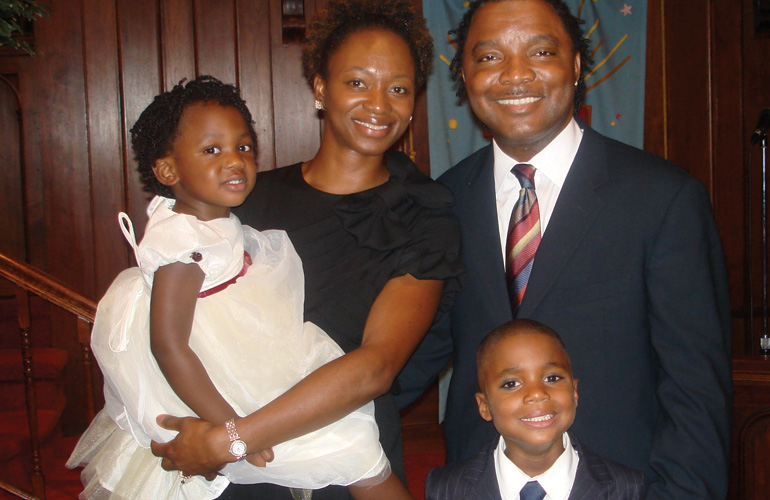My husband, Shaun, and I have always known we would adopt; we also knew that we wanted to adopt through our state’s Division of Family and Youth Services. So, several years ago, we signed up for training classes, and took that leap of faith that the child we wanted was already in the system just waiting for us to find him. I say “him” because we decided early on that we would adopt an African-American boy first. That choice was deliberate: Black boys aren’t as easy to place in adoptive homes, the experts told us; potential parents believe they are harder to rear than little girls.
Having been raised by African American parents ourselves, we knew better. There’s nothing like love, commitment, and faith in God to put a child on the right path.
We also understand how important it is for black boys to have a black male role model in the home, how that ever-present influence makes a difference in how a young boys self-worth is shaped. As a young married couple, blessed with enough financial resources to provide a good home, and armed with a vision of the family we hoped to build, it seemed that we could serve both our community and our own dream of being parents by adopting a black boy.
Sounds simple enough, but little did we know how many choices we had ahead of us: everything from the child’s age, to what shade of brown — yes, I said shade. I think I gasped out loud when our social worker mentioned that some parents go as far as stating what skin tone they’d prefer their child to have, as if kids are fabric swatches and as interchangeable as pieces of furniture. I was never concerned about physical resemblance. My uncle, who adopted two children, always jokingly said, “If you feed kids enough, they start to look like you anyway.”
About three months after we were certified as adoptive parents, we got “the call.” We’d been matched with an 18-month-old boy, who lived 45 minutes from our New Jersey home with his foster mom. In a matter of days, we met Myles; in a matter of weeks, he came home to live with us. Five years later, we adopted a little girl, Madison, who was three when we met her.
Sometimes I wonder what would have happened to my children, and to us, if our lives hadn’t crossed. I know I feel a huge responsibility to make sure they are brought up with the same values and strong sense of self that my parents instilled in me. I want them to know that they are special just the way they are, so I look into their eyes and tell them so, every day. I want my daughter to appreciate her own unique beauty, including her natural hair. I wear my hair in a short fro, and I leave my daughter’s hair natural, styled in neat, double-strand twists, because it suits her. She always gets compliments. I don’t want her to think that beauty means having her hair straightened. She has gorgeous chocolate-brown skin, and I compliment her on it all the time. I tell my son that he is handsome and smart. I do this because I know from experience that there are people in this world who will tell them otherwise. Both my husband and I have been through it ourselves, so we know the challenges that will come their way.They will have to confront racism, classism, and sexism in their lives, and if we don’t prepare them for that negativity by building them up first, they won’t know how to deflect it and emerge with their self-esteem intact.
There is an advertising campaign that says, “My black is beautiful.” I repeat that to my son and daughter, and I make them say it too. They have to take pride in who they are. My husband and I expose our children to as much of our own culture as possible. Our home is filled with books, movies, paintings, and photographs that celebrate our culture. We take our children to plays, dance performances, and concerts to expose them to the rich creativity of our community. We belong to a predominantly black church, and our son attends a diverse school. This is how you build up African American children’s self-esteem. This is how my husband and I were raised. The more a child knows about the accomplishments and contributions black people have made to this country, the more empowered they will feel, and the harder it will be for negativity to tear them down.
We won’t know if all we’ve done has taken root for years to come, but I think its important to plant those seeds — a thing of beauty can thrive, even under the toughest circumstances, given enough love, protection, and attention. Right now, there’s nothing more important to me than making sure my beautiful black children will thrive.



